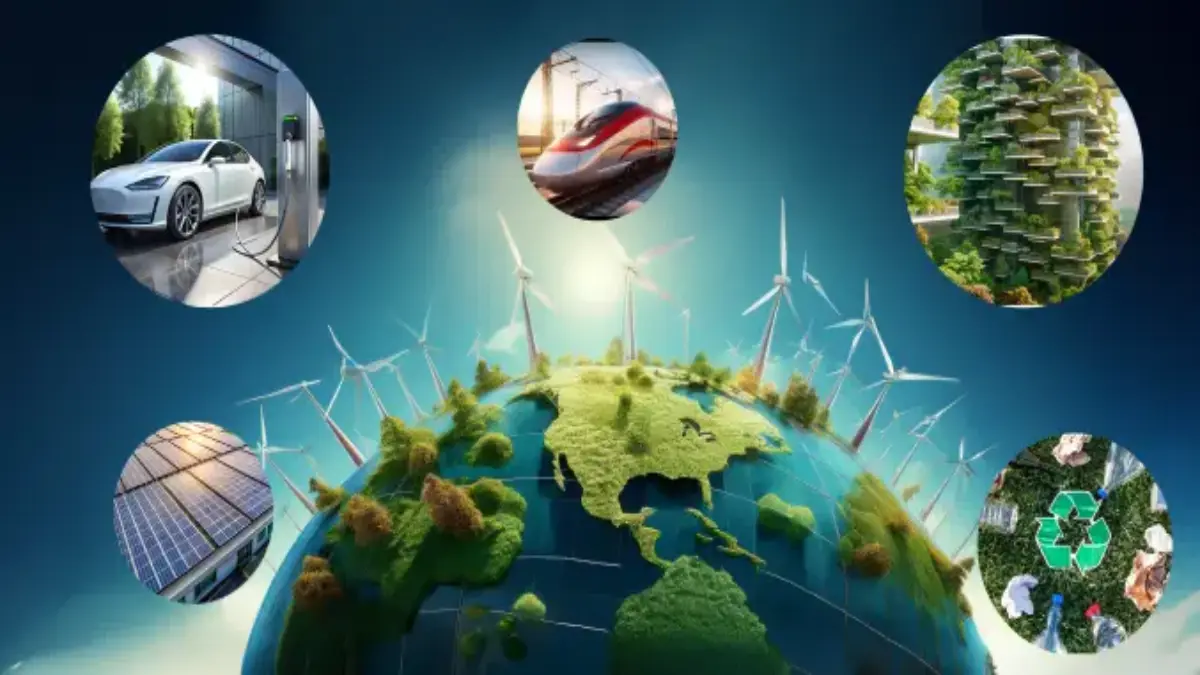
Sustainability has become a crucial concept in today’s business world, as companies are increasingly recognizing their responsibility to operate in a way that supports environmental, social, and economic well-being. But what exactly is sustainability, and how does it apply to corporate practices? At its core, sustainability refers to the capability to meet current needs without compromising the ability of future generations to meet theirs. In the corporate realm, sustainability encompasses a broad range of strategies and actions aimed at long-term viability. This blog will explore what sustainability means and highlight five key focus areas of corporate sustainability that are shaping the future of business.
What is sustainability?
Sustainability is the practice of meeting existing requirements without compromising future generations’ capability to meet their own. It involves a balance between economic growth, environmental care, and social responsibility. In simple terms, sustainability emphasizes the responsible use of resources to preserve ecosystems, promote social equity, and ensure long-term economic stability. It applies to various areas, including energy, waste management, resource conservation, and ethical practices. By prioritizing sustainability, individuals, businesses, and governments aim to create a healthier planet, address climate change, and build resilient systems that benefit both people and the environment.
Sustainability courses in India are equipping professionals with the knowledge and capabilities to address pressing environmental and social challenges. These programs offer insights into global best practices, covering topics like resource management, climate change mitigation, and corporate social responsibility. By building a a deep understanding of sustainable practices, these courses enable learners to lead their organizations towards ethical, eco-friendly, and sustainable growth. Graduates are prepared to integrate sustainability into business strategies, drive innovation, and meet regulatory standards, ensuring long-term success while balancing profit with environmental stewardship and social equity in a global context.
Five key focus areas of corporate sustainability
- Climate Risk Management and ESG Reporting
Climate risk management involves identifying and mitigating the impacts of climate change on business operations. Companies must assess their vulnerability to environmental disruptions and implement strategies to address these risks. ESG (Environmental, Social, and Governance) reporting ensures transparency and accountability by tracking and disclosing a company’s sustainability initiatives, social impact, and governance practices. This focus area allows businesses to build trust with stakeholders while demonstrating their commitment to ethical, responsible growth.
- Resilient Infrastructure and Smart Operations
Developing resilient infrastructure is key to ensuring business growth in the face of disruptions like natural disasters, supply chain issues, or technological failures. This involves creating systems that can withstand environmental and operational stressors. Smart operations refer to the use of advanced technologies—such as AI, IoT, and data analytics—to optimize processes, improve efficiency, and minimize waste. Together, these approaches help businesses maintain agility, reduce risks, and enhance long-term operational stability.
- Sustainable Supply Chains and Circular Economy
Sustainable supply chains focus on minimizing environmental impact throughout the entire production and distribution process. This includes responsible sourcing of materials, reducing emissions during transport, and improving the energy efficiency of operations. A circular economy approach emphasizes recycling, reusing, and regenerating materials to minimize waste. This shift from a linear “take-make-dispose” model to a circular system maximizes resource use and promotes sustainability.
- Electrification, Energy Efficiency, and Emissions Reduction
This focus area involves advancing the use of electric technologies and reducing reliance on fossil fuels. Electrification, particularly in sectors like transportation and industry, is crucial for lowering carbon emissions. Coupled with efforts to improve energy efficiency—such as optimizing resource consumption and reducing waste—companies can significantly cut their greenhouse gas emissions. This transition supports global efforts to combat climate change and meet sustainability targets.
- Sustainability Planning and Strategy
Effective sustainability planning and strategy development are essential for aligning business objectives with long-term environmental and social goals. This involves creating comprehensive plans that integrate sustainability into the core business model, setting measurable goals, and tracking progress. A well-structured sustainability strategy ensures that businesses are not only compliant with regulations but also actively contributing to positive environmental and social outcomes, leading to ethical and sustainable growth.
Future of sustainability in business
The future of sustainability in business is poised to become a core driver of growth and innovation. As climate change and resource scarcity intensify, companies will increasingly prioritize sustainable practices to reduce their environmental impact, enhance resilience, and meet consumer and regulatory demands. Businesses will focus on integrating sustainability into their strategies, operations, and supply chains, adopting technologies like AI and renewable energy to achieve efficiency and reduce emissions. Additionally, transparency through Environmental, Social, and Governance (ESG) reporting will become essential for building trust with stakeholders. Ultimately, sustainability will be crucial for long-term success and competitiveness in the global market.
Conclusion
Sustainability is vital for businesses aiming to thrive in an environmentally and socially responsible future. The five key focus areas—climate risk management, resilient infrastructure, sustainable supply chains, energy efficiency, and strategic sustainability planning—are essential for fostering ethical growth and long-term success. Pursuing a corporate sustainability course equips professionals with the skills and knowledge needed to implement these practices effectively. These courses provide insights into global best practices, ESG reporting, and sustainable business strategies, empowering individuals to drive meaningful change within their organizations and contribute to a more sustainable world.

